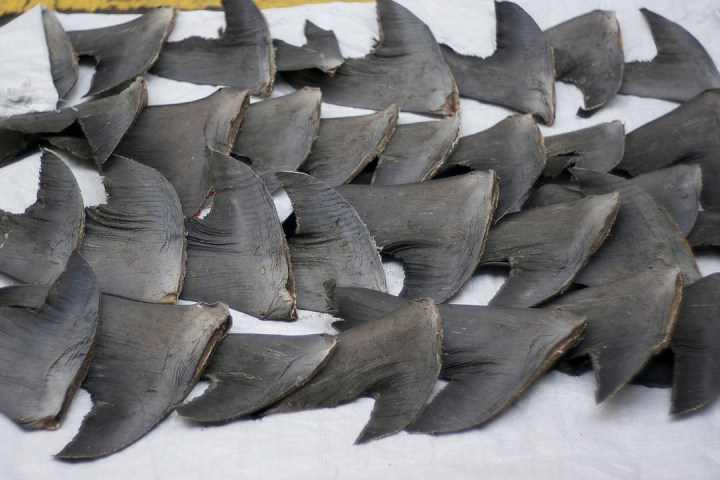
New Wave is the brain child of Jennifer Kaehms, Michelle Wolf, and Dominique Barnes. The trio is focusing on sustainable seafood, using technology to create alternative forms of popular seafood delicacies. These fabricated food items allow people to consume their favorite seafood without impacting the animal population or its ecology.
The team chose to work on a shark fin substitute because of the impact that shark fin harvesting –the practice of removing a shark fin and throwing the finless body back into the sea– has had on the shark population. With up to 73 million shark fins harvested annually, shark populations have suffered serious declines in those areas where harvesting is active. The team molds its substitute shark fins using collagen produced from genetically modified yeast. They hope to provide an ecologically-friendly alternative source of shark fins for consumers who want a guilt-free food source or are seeking to avoid pollution in their food.
Besides shark fins, the company also is actively developing a shrimp substitute because that edible crustacean is such a high-profile seafood item. “Shrimp is the highest volume consumed seafood in the US,” says co-founder Kaehms, “so it just made sense for us to start with something that can make the biggest splash.”
The shrimp substitute is being developed to match the taste, texture and nutritional composition of real shrimp by turning towards the algae that shrimp consume in the wild as an input. The team is working on different ways of extracting protein from the algae and mixing it in a way that makes its appealing to eat. While the team allegedly has nailed the flavor aspect, they are continuing to tweak the texture of shrimp, which is difficult to replicate. They hope to demonstrate their first shrimp product in February of next year as part of their participation in IndieBio, a startup incubator that helps fund innovations in biotechnology.



